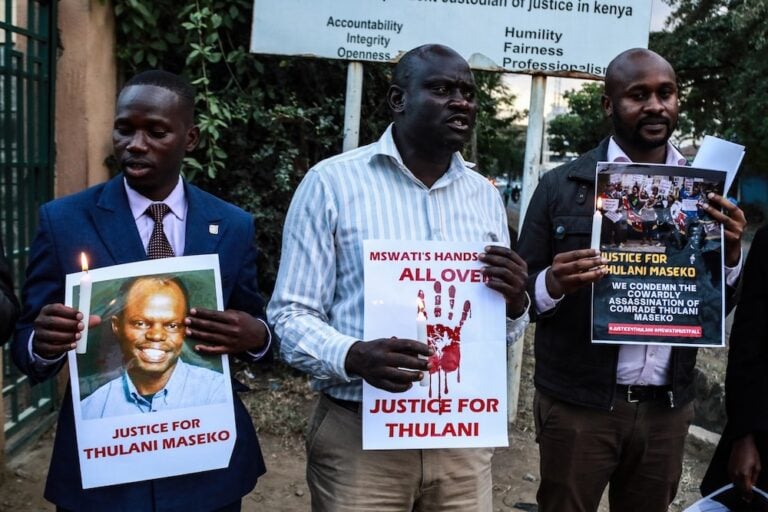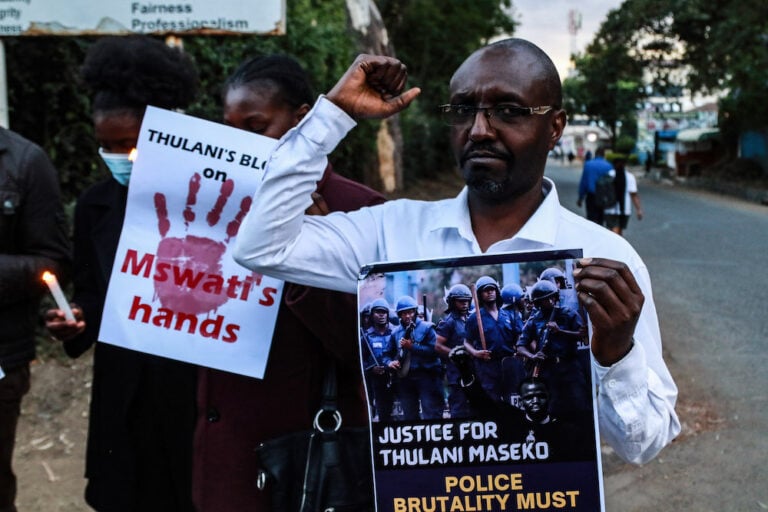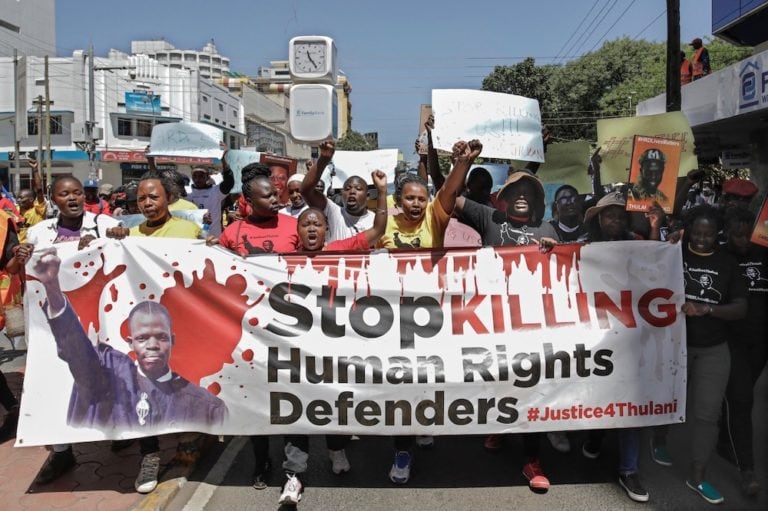Eugene Dube, the editor of the popular news site "Swati Newsweek", and two journalists are being hounded by authorities for stories critical of King Mswati.
This statement was originally published on rsf.org on 8 May 2020.
Reporters Without Borders (RSF) is extremely concerned about three news website journalists in eSwatini (the former Swaziland) who are being hounded by the police over articles critical of King Mswati, Africa’s last absolute monarch, and his government’s handling of the coronavirus crisis.
“Cops are back in my home. They are carrying guns. I managed to flee. I am now in hiding.” This is the message that RSF received from Swati Newsweek website editor Eugene Dube when the police went to his home for the second time in days. The first was on 23 April when they seized his laptop, several mobile phones, other devices and notebooks and subjected him to a heavy-handed interrogation for seven hours before finally releasing him pending the outcome of their investigation.
The raids were prompted by two articles in Swati Newsweek, one of eSwatini’s most popular news sites. The first, on 8 April, criticized the government’s response to the coronavirus epidemic. The second, on 14 April, was an interview with the leader of a new political party who advocated “removing” the king and replacing him with a multi-party democracy.
The authorities also have their sights on two other Swati Newsweek journalists. One is Mfomfo Nkhambule, who was also briefly arrested and interrogated. The third is currently wanted by the Swazi police.
“The proceedings initiated against this media outlet’s journalists amount to persecution,” said Arnaud Froger, the head of RSF’s Africa desk. “The systematic harassment and intimidation of journalists who dare to criticize the king or his government pose a major threat to independent news production. Hounding critical journalists is all the more unacceptable at this time, as it is liable to encourage even more self-censorship and reduce access to reliable and credible information about the coronavirus crisis.”
On 24 April, the police warned that the authorities would not hesitate to crack down hard on journalists who criticize King Mswati. The police referred to criticism of the monarch as “high treason,” a crime punishable by death.
Sicelo Vilane, the secretary general of the Media Workers Union of Swaziland, confirmed to RSF that the authorities pay close attention to anything published about the king, royalty and the government. The police used to go to newsrooms to censor these subjects. Now journalists are expected to know the red lines and censor themselves. But those who dare to cross the red lines risk terrible reprisals. Vilane said he feared that Swati Newsweek’s journalists could end up being “arrested or killed.”
Zweli Martin Dlamini, the editor of another independent Swazi news website, Swaziland News, fled to South Africa in March after being arrested for sedition and tortured by the police. In February, he had reported receiving death threats from the information minister, who is none other than Princess Sikhanyiso, King Mswati’s eldest daughter.
A small enclave within South Africa that was renamed the Kingdom of eSwatini at King Mswati’s behest in 2018, the former Swaziland is ranked 141st out of 180 countries in RSF’s 2020 World Press Freedom Index.



